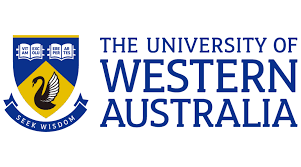University of Western Australia: UWA to lead new fight against bacterial pathogens
Researchers at The University of Western Australia have secured $700,000 funding from Melbourne-based not-for-profit company DMTC to lead an Australian collaboration to develop new drugs to combat antibiotic-resistant bacteria.
Chief Investigators Dr Mitali Sarkar-Tyson, from UWA’s School of Biomedical Sciences, and Associate Professor Keith Stubbs, from UWA’s School of Molecular Sciences, will work with DMTC and researchers from Monash University on the therapeutic drugs.
Dr Sarkar-Tyson said research would focus on the development of new medical countermeasures against bacterial pathogens.
“The compounds we’re investigating will help us tackle important diseases in Australia such as melioidosis, also known as Whitmore’s disease, which is caused by a bacterial infection.”
Dr Mitali Sarkar-Tyson
“The compounds we’re investigating will help us tackle important diseases in Australia such as melioidosis, also known as Whitmore’s disease, which is caused by a bacterial infection,” she said.
Associate Professor Stubbs said the compounds were expected to combine cost-efficient manufacturing with favourable product characteristics that allow for translation to clinical trials.
The leader of DMTC’s Medical Countermeasures program, Dr Felicia Pradera, reiterated the importance of projects aimed at enhancing Australia’s national health security.
“Novel countermeasures need to be developed against highly infective bacterial pathogens, either because a countermeasure doesn’t yet exist or because bacterial resistance is reducing the effectiveness of currently-fielded antibiotic treatments,” Dr Pradera said.
“Investing in projects like this has direct dividends in terms of generating Australian intellectual property. It’s also showing the value of carefully-defined collaboration pathways to improve translational research outcomes.”
Dr Sarkar-Tyson said previous research supported by DMTC, the Defence Science Centre and Defence’s Next Generation Technologies Fund, and involving Australian and international experts, had been instrumental in preparing for this next phase of the project.

